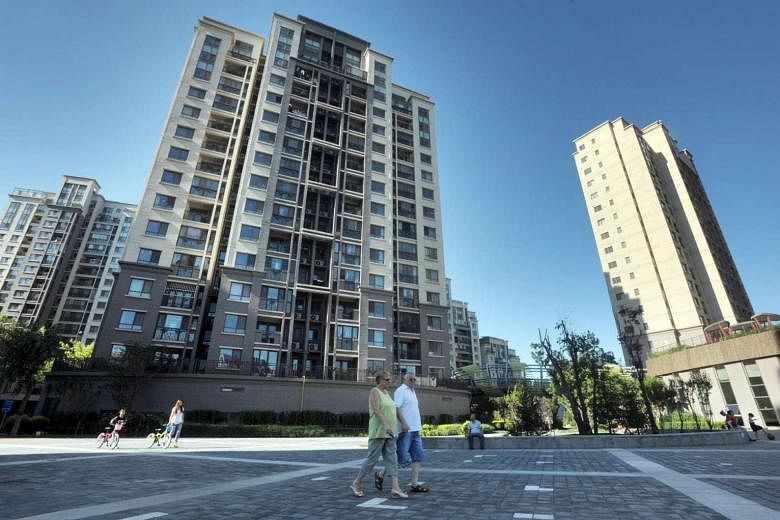The top bid at a recent tender for residential land in Tianjin Eco-city was over four times the minimum amount - the highest premium compared with other bids within the Tianjin Binhai New Area, an economic and industrial zone of the northern port city, this year.
This reflects market confidence in the joint project between Singapore and China's governments.
The Tianjin Housing Group outbid eight other developers for two plots of residential sites in the first competitive bidding exercise at the eco-city last week.
One of the two winning bids was more than four times the minimum bid price at 1.2 billion yuan (S$244 million) for an 8.52ha plot of land in the central district of the eco-city.
Calling the high bid price "very unusual", Mr Liew Choon Boon, head of the city's master developer Sino-Singapore Tianjin Eco-city Investment and Development Company, said the announcement of a new rail link in April is an important factor in attracting the interest of seasoned developers.
A public bidding for a residential site in January saw only one developer putting in a bid, he noted.
The 44km railway line, due to be completed by 2020, will link the eco-city with the high-speed railway between Tianjin and Beijing.
In its eighth year, the eco-city has seen more than 50,000 residents and some 3,700 firms move into the 8 sq km start-up area.
This is far from the original aim of attracting 350,000 residents to the 30 sq km city by early to mid- 2020s.
But Mr Liew said the figure was the "planned carrying capacity" of the site. "It could reach 400,000 or even 500,000, when the entire city is completed."
The fledgling city now has three community centres, a clinic, two hotels and nine schools. A general hospital with 350 beds will open in mid-September.
"We're reaching the tipping point, which will bring us to the next stage of development," said Mr Liew. The eco-city's residential population, the size of a significant housing estate in Singapore, has reached a critical mass, he said.
Now, the master developer will turn its attention to a 4.5 sq km area in the central district, where it aims to build 18,000 homes for nearly 60,000 residents by 2018.
Home sales in the city have been "extremely good" this year, said Mr Liew. More than 3,700 houses were sold in the first six months of the year, up 30 per cent from the same period last year.
While the lifting of property cooling measures in the Tianjin Binhai New Area in late 2014 could have helped improve buying sentiments, Mr Liew believes residents are attracted by the well-built infrastructure and clean and green environment afforded by the city.
He noted that while Tianjin was flooded on Wednesday due to torrential rains, the eco-city had just minor instances of "ponding".
He added that after the deadly blasts last year at a chemical warehouse in the port, 16km from the eco-city, "quite a number" of Tianjin residents moved to the city.
The incident could have increased awareness of the importance of choosing a safe place to live.
Tianjin resident Qian Wenkuan, 62, relocated to the eco-city two years ago after witnessing the transformation of the area.
He cited the availability of good schools for his young granddaughter and a clean and green environment as the main reasons for moving.
"Previously, I lived in the city centre, where it was noisy and near to polluting factories. Now, there is plenty of greenery and the air is much fresher," he added.


